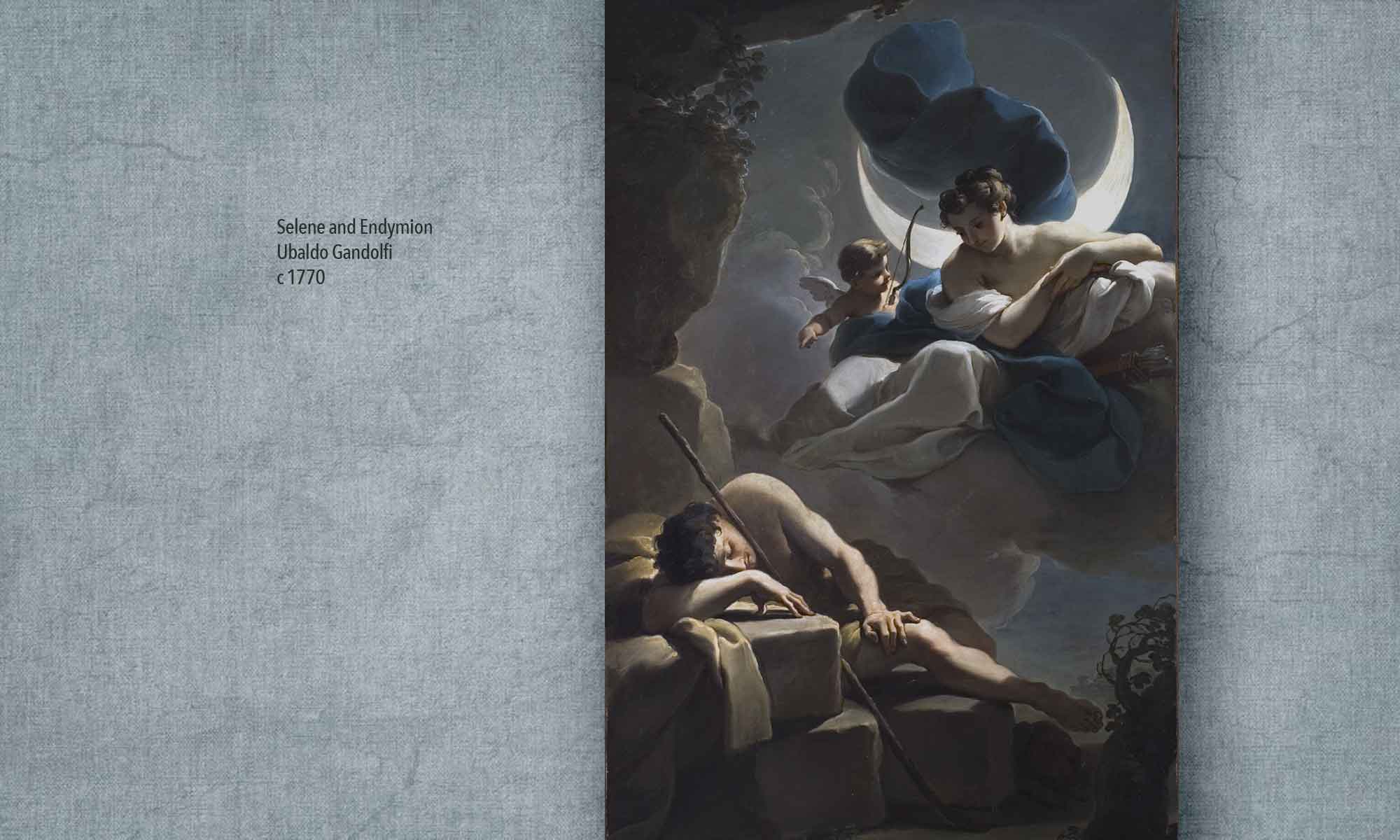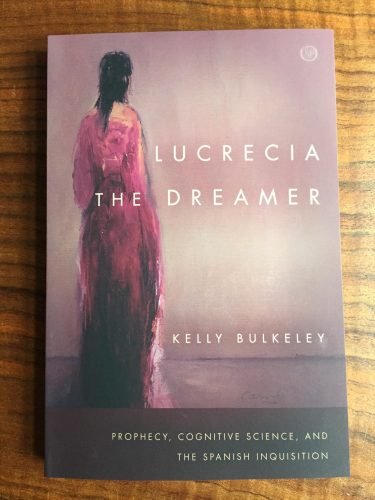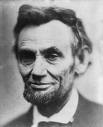 Throughout history, people have believed prophetic dreams can give us glimpses of future events. Is there any reason to believe such dreams are possible?
Throughout history, people have believed prophetic dreams can give us glimpses of future events. Is there any reason to believe such dreams are possible?
It would seem not. Most instances of a dream predicting a significant event in waking life are probably just coincidences. For example, people periodically dream of car crashes, so at some point a person will dream of a car crash the night before actually getting in a car crash. That’s not prophecy, that’s just the law of averages. The claims people make about future-telling dreams are most likely to be fantasies, fabrications, or failures of causal reasoning.
That may be the safest position to take. It’s not the most scientific position, however, because it isn’t based on evidence, just a resolute skepticism. The actual evidence in support of anticipatory dreaming is not so easily dismissed, and merits more serious attention than it typically receives.
As far as evidence from history, the material presented in Lucrecia the Dreamer: Prophecy, Cognitive Science, and the Spanish Inquisition (2018) offers the best documented case study of dreams that accurately predicted a major event in waking life. In the late 16th century a group of Spanish priests carefully recorded and transcribed the dreams of an illiterate young woman, Lucrecia de Leon. Over a period of nearly a year, several of her dreams predicted the failure of the Spanish Armada in its attack on England, despite all signs of Spain’s superiority in the upcoming battle. When the Armada suffered a shocking and humiliating defeat in 1588, Lucrecia’s dreams were proven right in the most spectacular way possible. Unfortunately, this did not prevent her from being arrested by the Inquisition and charged with treason and heresy.
A case study like this has to do with just one person, so it’s hard to know how far we can legitimately generalize from Lucrecia’s experiences to other people. But we can draw on additional sources of information about contemporary people. In the “2015 Demographic Survey” in the Sleep and Dream Database, one of the questions asked whether the individual had ever had a dream that seemed to anticipate or predict a future event. Out of 2,303 total participants (1,304 female, 999 male, all American adults) responding to an online survey administered by YouGov, 30% of the females and 19% of the males answered yes, they had experienced such a dream at least once in their lives. The results of this survey can be viewed here.
The findings from this survey suggest that most people do not recall having a predictive dream, but a significant number of people (considerably more women than men) do claim to have had such dreams. Prophetic dreaming is not just a historical oddity, or a pre-modern superstition. Future-oriented dreams play an active role in the lived experience of many, many people in contemporary society.
The question is often raised of how to explain such dreams in terms of current scientific knowledge. The best answer, I believe, comes from looking at anticipatory dreaming as a special case of dreaming in general. To summarize a great deal of research, dreams have a broadly adaptive function in the mind and brain: promoting healthy growth, stimulating creative energies, and helping people respond to challenges, threats, and opportunities. The content of dreams typically revolves around the most important emotional concerns in the individual’s waking life, and dreaming becomes especially intense and meaningful at times of crisis and uncertainty.
If we recognize these features of natural, normal dreaming, then it becomes easier to appreciate how and why dreams can anticipate future possibilities. In waking life our minds do this all the time—we plan, predict, rehearse, and prepare for important events coming in the future. Our minds continue to do this when we sleep at night, but with fewer distractions from external stimuli and more cognitive freedom to explore alternative, “what if?” scenarios. There is nothing supernatural or fanciful about this. Indeed, this ability to imagine and think about the future has given our species an enormous advantage through the course of evolutionary history. This is the best explanation for what people have traditionally called prophetic dreaming: the forward-thinking capacity of the human mind operates in both waking and dreaming.
The Swiss psychologist Carl Jung was an early advocate for this idea. He proposed a “prospective” function for dreams, in which various impressions from daily experience are brought together in the unconscious and used to envision possible aspects of the individual’s future (an idea which can be traced back to the ancient Greek philosopher Aristotle). In some cases, the dreaming anticipations are more prescient than what the waking mind can apprehend. Jung said that dreams provide
“an anticipation in the unconscious of future achievements, something like a preliminary exercise or sketch, or a plan roughed out in advance… The occurrence of prospective dreams cannot be denied. It would be wrong to call them prophetic, because at bottom they are no more prophetic than a medical diagnosis or a weather forecast. They are merely an anticipatory combination of probabilities which may coincide with the actual behavior of things but need not necessarily agree in every detail. Only in the latter case can we speak of ‘prophecy.’ That the prospective function of dreams is sometimes greatly superior to the combinations we can consciously foresee is not surprising, since a dream results from a fusion of subliminal elements and is thus a combination of all the perceptions, thoughts, and feelings which consciousness has not registered because of their feeble accentuation… With regard to prognosis, therefore, dreams are often in a much more favorable position than consciousness.” (“General Aspects of Dream Psychology”)
Perhaps there is a transcendent capacity of the human mind at work in these dreams. Perhaps our souls are tuning into other metaphysical realities, or being visited by spiritual beings who share with us their knowledge of the future. Whether or not these beliefs have ultimate merit, Jung’s point is valid in terms of current psychological knowledge of brain-mind functioning across the cycle of waking, sleeping, and dreaming.
####
This was first posted in Psychology Today, November 22, 2019.

 On May 25, 1590, by direct order of King Philip II, the Spanish Inquisition arrested a young, uneducated woman from Madrid named Lucrecia de Leon on charges of heresy and treason. She was brought to a secret prison in Toledo, interrogated, and tortured to make her confess her guilt. The evidence against her was overwhelming. She had been caught conspiring with known rebels, publicly slandering the king, defying direct orders from the church, and stirring up dissent against the imperial government.
On May 25, 1590, by direct order of King Philip II, the Spanish Inquisition arrested a young, uneducated woman from Madrid named Lucrecia de Leon on charges of heresy and treason. She was brought to a secret prison in Toledo, interrogated, and tortured to make her confess her guilt. The evidence against her was overwhelming. She had been caught conspiring with known rebels, publicly slandering the king, defying direct orders from the church, and stirring up dissent against the imperial government.


